ICRN Meet the Experts
The International Cholangiocarcinoma Research Network (ICRN) and the European Network for the Study of Cholangiocarcinoma (ENS-CCA) highlight global CCA expert scientists and physicians. This initiative will help CCA experts know each other and interact with a more diverse group of global leaders in the field. We hope that knowing each other better will stimulate innovative and collaborative ideas and opportunities.

Monica Niger, MD

Monica Niger, MD
“I am deeply motivated to pursue high-quality research for biliary tract cancers, and I think that the key to this purpose is multicenter and international collaboration.”
Name: Monica Niger MD
Organization: Fondazione IRCCS Istituto Nazionale dei Tumori di Milano
Can you tell us a bit about yourself?
I am a GI Medical Oncologist at the National Cancer Institute of Milan, Italy, and I focus mostly on biliary tract cancers and pancreatic cancers.
I studied to become a Medical Oncologist in Milan, where I had the opportunity to develop my interest in cancer research with the help of wonderful mentors and a great team that is like a second family to me. I also had the incredible chance of spending a year at Yale University, where I worked on the effects of oncometabolites on the DNA repair pathways both in the lab and in the clinic. I will be forever grateful to my mentors at Yale, who taught me a great deal and gave me the opportunity to help them directly translating their lab findings in a clinical trial, in a protocol that I wrote during the 2017 ASCO/AACR Methods in Clinical Cancer Research Workshop.
I now work with a small but highly motivated team of young oncologists who focused their clinical and research interest on biliopancreatic cancers.
Can you share one or two of your specific research interests?
Our GI Oncology Team has a long-lasting experience in the setting of GI cancers, including biliary tract cancers, since our Institution is a big referral center and it has a leading role in Italian oncology networks. We focus mainly on: translational research, integration of ctDNA and CTC approaches in clinic, molecular tumor profiling (with a focused molecular tumor board). I am also very interested in developing academic clinical trials for biliary tract cancer
Why did you decide to specialize in hepatobiliary cancers?
Biliary Tract cancers have been in some way always part of my training and career. In a totally casual (and fortunate) way, when I was still a Medical School student, I was assigned to the team working on a clinical trial for patients affected by biliary tract cancers and treated with second-line mTOR inhibitor. That trial became the main topic of my graduation thesis and it started to develop my interest toward GI cancers and, specifically, biliary tract cancers. Then, during my fellowship, I started to actually see and treat more and more of these patients in clinic and I realized how much more there was to learn and do for them. As my mentor used to say, “there is no real research until you wait for the next patient and you ask yourself how you can improve their life”. That happened very often with patients affected by biliary tract cancers, which are a real unmet need. Finally, during my year at Yale University, I became very passionate about studying biliary tract cancers both from the preclinical and clinical point of view and I decided that it would be my main focus.
Can you describe one of the unforgettable moments in your patients care or research that has impacted your career?
It’s difficult to highlight a single moment, since being an oncologist is full of intense emotions. It’s always a great emotion when I am able to offer my patients a new opportunity, either due to clinical trials or tumor profiling. Also, as a doctor, I keep learning from my patients and their families, who show me on a daily basis how to cope with good and bad news. There was a patient, a young male who was diagnosed with Cholangiocarcinoma when he was 35: he had a long history, full of aggressive surgeries and innovative treatments, but in the end, when I just couldn’t find another option for him, he kept saying “the only important thing is that you keep taking care of me. If you take care of people you always win”. That’s something I will never forget and that will guide me in my career.
Can you tell us one thing collaboration with colleagues could accomplish that you could not accomplish on your own?
I am deeply motivated to pursue high quality research for biliary tract cancers and I think that the key to this purpose is multicenter and international collaboration. Biliary tract cancer is a complex group of diseases and it’s very important to share our experiences, data and ideas to make sure that a research hypothesis can be fully studied and, ultimately, give some answers to our patients. As such, I am also part of the EORTC hepatobiliary/NET task force and of ENS-CCA.
If you had access to one resource that would move your research forward, what would that resource be?
More funding for investigator initiated trials.
How did you learn about the Cholangiocarcinoma Foundation?
I learned about CCF when I was a fellow and I was working at Yale University. I think it has the great merit of enhancing research and helping investigators while keeping the patients’ interests always as the main focus. It is really the joint between the two worlds and I would love for the foundations now starting in Italy to grow into something like CCF.
Can you tell us why you became a member of the ICRN?
To enhance international collaboration
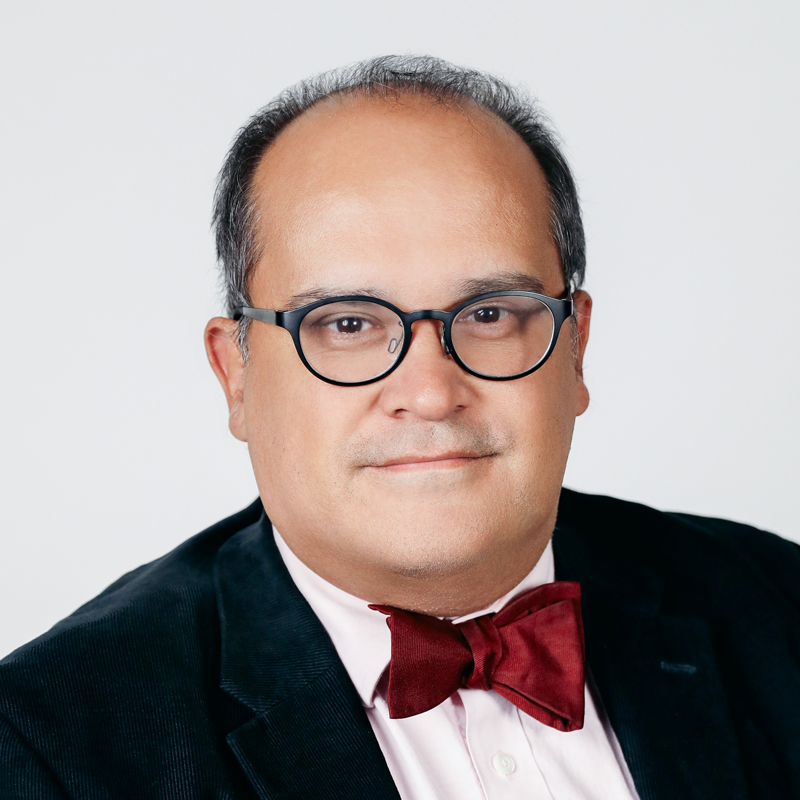
Flavio Rocha, MD, FACS, FSSO
Oregon Health & Science University

Flavio Rocha, MD, FACS, FSSO
Oregon Health & Science University
Dr. Rocha is a surgical oncologist and hepatopancreatobiliary surgeon in the Section of General, Thoracic and Vascular Surgery at Virginia Mason Medical Center in Seattle. In addition he is the Director of Research in the Digestive Disease Institute and Associate Medical Director of the Floyd and Delores Jones Cancer Institute. He holds an appointment as a Clinical Associate Professor of Surgery at the University of Washington and Clinical Professor of Medical Education and Clinical Sciences at Washington State University. After attending the Pritzker School of Medicine at the University of Chicago, Dr. Rocha completed a residency in general surgery at the Brigham and Women’s Hospital and a postdoctoral research fellowship in tissue engineering at Harvard Medical School, both in Boston. After residency, he served as a surgical oncology and hepatopancreatobiliary surgery fellow at Memorial Sloan-Kettering Cancer Center in New York City. His clinical practice encompasses all aspects of benign and malignant disease of the liver, bile ducts and pancreas. As an investigator at the Benaroya Research Institute in Seattle, his research is focused on biomarker discovery and novel therapeutics in pancreaticobiliary cancer. He has been funded by ASCO and the Cholangiocarcinoma Foundation. He currently sits on the editorial boards of HPB, Annals of Surgical Oncology, Journal of Surgical Oncology and PLoS ONE. In addition, he is the current Chair of the Membership Committee in the AHPBA and Vice-Chair of the SWOG Surgery Committee. Lastly, he has served on the Pancreas Task Force at the NCI and is the surgical lead of the International Cholangiocarcinoma Research Network.
(Liquid Biopsy Initiative Group)
“I am always amazed by the courage of my patients, particularly in the face of adversity.”
Can you tell us a bit about yourself?
I am surgical oncologist with a both a clinical and research focus in tumors of the liver, biliary tract and pancreas. I serve as the Division Head of Surgical Oncology at Oregon Health and Science University and Physician-in-Chief of the Knight Cancer Institute, both in Portland, OR. In my spare time, I like to travel and take photographs particularly in the beautiful Pacific Northwest with my family and golden retriever. Originally from Brazil, I do enjoy the beach and am an avid soccer fan.
Can you share one or two of your specific research interests?
My interests lie in biomarker discovery and validation for pancreatobiliary cancers. Their use for early detection, response to therapy and prognostic evaluation can help us improve our treatment modalities. I am also heavily involved in the NCTN Cooperative Groups in order to help design and execute novel therapeutic trials particularly in the localized space.
Why did you decide to specialize in hepatobiliary cancers?
As a trainee, I was attracted to the complexities of the anatomy and physiology of the liver and pancreas. These were also the most challenging operations to perform and master in the abdomen. Lastly, I felt this was a disease where I could perhaps make the most impact.
Can you describe one of the unforgettable moments in your patients care or research that has impacted your career?
I am always amazed by the courage of my patients, particularly in the face of adversity.
Can you tell us one thing collaboration with colleagues could accomplish that you could not accomplish on your own?
The neoadjuvant chemotherapy trial for intrahepatic cholangiocarcinoma is a great example of an ICRN effort that could not have been accomplished in any one institution.
If you had access to one resource that would move your research forward, what would that resource be?
We are always looking for funding and also to be able to expand clinical trials abroad, particularly in Asia.
How did you learn about the Cholangiocarcinoma Foundation?
I was fortunate to receive the inaugural ASCO Young Investigator Award sponsored by the Cholangiocarcinoma Foundation. This initial support lead to my ability to dedicate my career to the field.
Can you tell us why you became a member of the ICRN?
In order to connect with my fellow colleagues around the country and the world especially those in different oncologic specialties. We have been able to perform studies, launch efforts and complete clinical trials with the dedication and support of the ICRN.
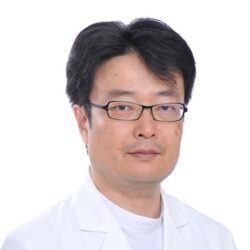
Chigusa Morizane, MD, PhD

Chigusa Morizane, MD, PhD
“I still remember the smile on the face of a biliary tract cancer patient who received a new investigational drug and showed dramatic response through an investigator-initiated clinical trial that we had designed, negotiated, and planned.”
Name: Chigusa Morizane M.D. Ph.D
Organization: National Cnancer Center Hospital
Can you tell us a bit about yourself?
I was born and raised in Tokyo, Japan in 1972. I graduated from Yokohama City University School of Medicine and trained as an Oncologist. Currently serving as the assistant Chief of Department of Hepatobiliary and Pancreatic Oncology Division National Cancer Center Hospital, Tokyo, Japan. I am overjoyed every time I see a slight improvement in a treatment strategy for a refractory disease. In my private life, I enjoy the beautiful and stimulating life in Japan with my wife and two beautiful children. I love listening to music. I look forward to going to the symphony halls in Chicago and San Francisco when I attend ASCO and GI-ASCO meetings.
Can you share one or two of your specific research interests?
I am interested in clinical trials and genomic medicine in the biliary tract cancer.
Why did you decide to specialize in hepatobiliary cancers?
hepatobiliary cancers are refractory and have few treatment options. The higher and steeper the wall, the more rewarding it is.
Can you describe one of the unforgettable moments in your patients care or research that has impacted your career?
I still remember the smile on the face of a biliary tract cancer patient who received a new investigational drug and showed dramatic response through an investigator-initiated clinical trial that we had designed, negotiated, and planned.
Can you tell us one thing collaboration with colleagues could accomplish that you could not accomplish on your own?
Biliary tract cancer is already not possible without close collaboration among all genres, including advanced biliary stent technology, advanced genomic medicine, treatment with immune checkpoint inhibitors, and countermeasures against side effects. It is a complex disease that cannot be covered by one person’s ability.
If you had access to one resource that would move your research forward, what would that resource be?
Foundation for global investigator-initiated clinical trials through grants and provision of new drugs.
Collect samples from US, EU, and Asia to identify regional and racial differences.
How did you learn about the Cholangiocarcinoma Foundation?
During the ASCO meeting, I was chatting with an expert doctor who invited me to join ICRN.
Can you tell us why you became a member of the ICRN?
At the first meeting, I found Cholangiocarcinoma Foundation to be a very exciting and wonderful group, so I decided to join.
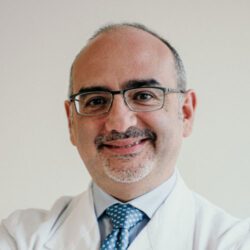
Davide Melisi, MD, PhD

Davide Melisi, MD, PhD
“As a general principle, I always tried to challenge myself in making a difference for the most tough and urgent problems in oncology.”
Name: Davide Melisi
Organization: University of Verona, Italy
Can you tell us a bit about yourself?
I am Associate Professor of Medical Oncology with a special interest in gastrointestinal tumors, early phase clinical trials, and translational research. I am the director of the Experimental Cancer Medicine Unit and the Laboratory of Digestive Molecular and Clinical Oncology at the University of Verona, Italy.
I have been directly involved in laboratory and clinical research since my internship as MD student and as fellow in Medical Oncology at the University of Naples “Federico II” Medical School under the mentorship of Drs. Giampaolo Tortora and Fortunato Ciardiello.
In 2005, I joined the Department of Gastrointestinal Medical Oncology at the MD Anderson Cancer Center Houston, TX, under the mentorship of Drs. James L. Abbruzzese and Milind Javle and I worked in the lab led by Dr. Paul J. Chiao.
I moved back to Italy in 2009 and was recruited as faculty member at the University of Verona, where I live with my wonderful wife Alessandra, and our three beautiful kids Lorenzo, Miriam, and Stefano. We love cooking all together, skiing in the gorgeous Dolomiti mountains in the winter, and discover the wonders of Sardinia or Sicily aboard our RIB boat in the summer.
Can you share one or two of your specific research interests?
In my lab, we study the cellular and molecular mechanisms responsible for the resistance of biliary tract cancers to standard treatments. Our research led to the development of novel agents which could modulate this tumor resistance, and to the identification of potential predictive biomarkers for patients selection and personalized treatments. In the clinical unit, we develop this concepts by running clinical trials with the most innovative targeted agents and immunotherapeutic drugs in patients affected by cholangiocarcinoma. In collaboration with our team of radiologist led by Dr. Mirko D’Onofrio, we are exploring the application of radiogenomic for the selection of patients with tumors addicted to the druggable product of a mutated oncogene.
Why did you decide to specialize in hepatobiliary cancers?
As a general principle, I always tried to challenge myself in making a difference for the most tough and urgent problems in oncology. Gastrointestinal tumors continue to be a major unsolved health problem and, despite the efforts to improve treatments, the prognosis of patients remains extremely poor. However, among these tumors, cholangiocarcinomas appear to be different. They seem to be a continuous source of new potentially activable molecular alterations, which makes preclinical research and translating these findings into novel treatments for patients even more exciting.
Can you describe one of the unforgettable moments in your patients care or research that has impacted your career?
I definitely remember with great emotion some of the very first times we had the chance to treat patients with cholangiocarcinoma with selective inhibitors of FGFR. Now we know that FGFR-mutant tumors are more frequent in women, in patients who are young, and without other major risk factors. In particular I recall a young woman who referred to our unit, desperate for yet another disease progression after different lines of chemo, whose local test for FGFR mutations was negative for mutations. We did not trust the first result though, and instead analyzed again the tumor sample by using a more sophisticated NGS assay which reported a rare FGFR gene rearrangement. She started a treatment with an FGFR inhibitor, to which she had a major response. More than three years after starting the treatment she is still well. Her first CT scan 2 months after the treatment was for us one of the most rewarding moments of the last years.
Can you tell us one thing collaboration with colleagues could accomplish that you could not accomplish on your own?
Here at U of Verona, I am very fortunate to be a member of the multidisciplinary teams for hepatobiliary, gastric, and pancreatic cancers, working with outstanding oncologists, surgeons, radiologists, hepatologists, and radiotherapists, each of them worldwide-recognized experts in their field.
Thanks to the close collaboration of our Experimental Cancer Medicine Unit, fully dedicated to patients in clinical trials, with the unit of Liver Surgery led by Drs. Guglielmi and Andrea Ruzzenente we are now a major referral center in Italy for patients with hepatobiliary cancers and this allows us to be among the top enrollers worldwide in clinical trials for these diseases.
If you had access to one resource that would move your research forward, what would that resource be?
More funding to invest in human capital. If I could ask something, I would have had more resources to hire as junior faculty all the talented clinical fellows and lab postdocs that trained in my unit and my lab in the last years. In our country there are several opportunities for research grants through government or private charities. However, these funds mainly support consumables and early career fellowships. It would be extremely important to have funds also for professorships that could support the career of junior faculty and give them the opportunity to continue to follow their projects in cancer research.
How did you learn about the Cholangiocarcinoma Foundation?
I was introduced to CCF and ICRN by my friend Dr. Milind Javle.
I was immediately impressed by the flawless organization run by Stacie Lindsey and her staff and by the large number of initiatives that the Foundation supports.
Can you tell us why you became a member of the ICRN?
I believe the collaboration among dedicated researchers from all over the world is the key to achieve truly relevant results in research and this is why I became a member of ICRN early on. ICRN’s ability to bring together the most brilliant scientists from US , Europe, Asia and beyond is priceless.
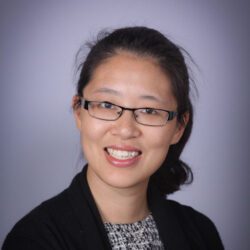
Jenifer Wo

Jenifer Wo
“I treated her with definitive ablative RT, and she lived for another 4 years, before she died of unrelated causes. It was a learning lesson for me, and so beautiful to see.”
Name: Jennifer Wo
Organization: Massachusetts General Hospital
Can you tell us a bit about yourself?
I am a clinical radiation oncologist who specializes in GI cancer. I’ve worked at MGH since 2010. I have 3 kids, ages 5-9, and currently live in Boston, MA.
Can you share one or two of your specific research interests?
-Outcomes research for ICC
-Clinical trial
Why did you decide to specialize in hepatobiliary cancers?
-Rewarding, lots to learn about role of liver directed therapies
Can you describe one of the unforgettable moments in your patients care or research that has impacted your career?
A 86 yo female patient with unresectable intrahepatic cholangiocarcinoma self-referred to me after being referred to hospice at her local hospital. I treated her with definitive ablative RT, and she lived for another 4 years, before she died of unrelated causes. It was a learning lesson for me, and so beautiful to see.
Can you tell us one thing collaboration with colleagues could accomplish that you could not accomplish on your own?
-Multi-institutional registry for impact of RT for intrahepatic chlolangio
If you had access to one resource that would move your research forward, what would that resource be?
-Database manager
How did you learn about the Cholangiocarcinoma Foundation?
-Have spoken at ICRN. Loved it. Would love to be more active.
-Have worked closely with Lipika Goyal.
Can you tell us why you became a member of the ICRN?
-Enjoy thee research and scientific community.
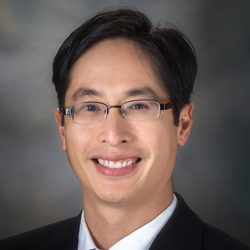
Lawrence Kwong

Lawrence Kwong
“Meeting patients and caretakers at the Cholangiocarcinoma Foundation Annual Meeting, important to hear their stories and concerns”
Name: Lawrence Kwong
Organization: UT MD Anderson Cancer Center
Can you tell us a bit about yourself?
Have been a PI for 6 years, was the TCGA co-chair for cholangio.
Can you share one or two of your specific research interests?
Chromatin modifiers, biomarkers
Why did you decide to specialize in hepatobiliary cancers?
Understudied cancer type, fascinating mutation landscape
Can you describe one of the unforgettable moments in your patients care or research that has impacted your career?
Meeting patients and caretakers at the Cholangio Foundation Annual Meeting, important to hear their stories and concerns
Can you tell us one thing collaboration with colleagues could accomplish that you could not accomplish on your own?
Patient sample acquisition and expert analysis
If you had access to one resource that would move your research forward, what would that resource be?
Access to broader mouse models, GEMMS, PDX, etc.
How did you learn about the Cholangiocarcinoma Foundation?
Annual Meeting
Can you tell us why you became a member of the ICRN?
To connect with top researchers and physicians
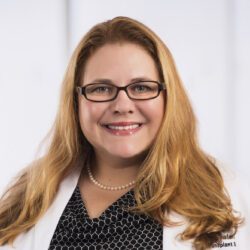
Keri Lunsford MD, PhD, FACS

Keri Lunsford MD, PhD, FACS
“The liver is the most complex organ in the body, and its dysfunction impacts every other organ system.”
Name: Keri Lunsford MD, PhD, FACS
Organization: Rutgers University Hospital
Can you tell us a bit about yourself?
I am an Assistant Professor of Surgery in the Division of Transplant and Hepatobiliary Surgery at Rutgers New Jersey Medical School and Director of the Liver Transplant and Hepatobiliary Biorepository. I am also a member of the Rutgers Center for Immunity and Inflammation as a clinician-scientist specializing translational liver transplant immunology. My clinical interests include liver transplantation, hepatocellular carcinoma and cholangiocarcinoma, recipient frailty, simultaneous liver kidney transplantation, and liver transplant futility. I received my undergraduate degree in Biochemistry from Miami University in Oxford, Ohio where I graduated with honors. I received MD and PhD degrees from The Ohio State University, where I was a part of the Medical Scientist Training Program. I then completed general surgery residency and a surgical research fellowship at Duke University followed by a clinical fellowship in multi-organ abdominal transplantation and hepatobiliary surgery at the University of California, Los Angeles (UCLA). My research is funded by the American Society of Transplant Surgeons, the National Institutes of Health NIDDK, and the New Jersey Health Foundation.
Can you share one or two of your specific research interests?
My specific research interests revolve around translational studies of liver transplant recipient frailty on the immune system as well as how cirrhosis-induced immune dysfunction impacts cancer reoccurrence and development of infections following liver transplant. In addition, I am involved in several clinical and translational research projects involving liver transplant oncology, including cholangiocarcinoma and hepatocellular carcinoma.
Why did you decide to specialize in hepatobiliary cancers?
The liver is the most complex organ in the body, and its dysfunction impacts every other organ system. My interest in the liver led me to pursue liver transplant surgery as a specialty. I appreciate the multidisciplinary approach needed to treat hepatobiliary cancers, and incorporation of transplant in the treatment algorithm can substantially improve the survivability of the deadly cancers in select patients.
Can you describe one of the unforgettable moments in your patients care or research that has impacted your career?
Finding an “orphan” liver for a patient with cholangiocarcinoma that would not otherwise have received a liver transplant. This resulted in a cure for their otherwise unresectable disease and significantly improved their quality of life.
Can you tell us one thing collaboration with colleagues could accomplish that you could not accomplish on your own?
I am collaborating with a colleague on the development of CAR-NK cell therapies to treat hepatobiliary malignancies.
If you had access to one resource that would move your research forward, what would that resource be?
More time
How did you learn about the Cholangiocarcinoma Foundation?
I learned about the CCF through my work in liver transplant for intrahepatic cholangiocarcinoma
Can you tell us why you became a member of the ICRN?
I feel that the ICRN is especially well equipped to approach emerging research and clinical advances in the treatment of cholangiocarcinoma in a multidisciplinary fashion.
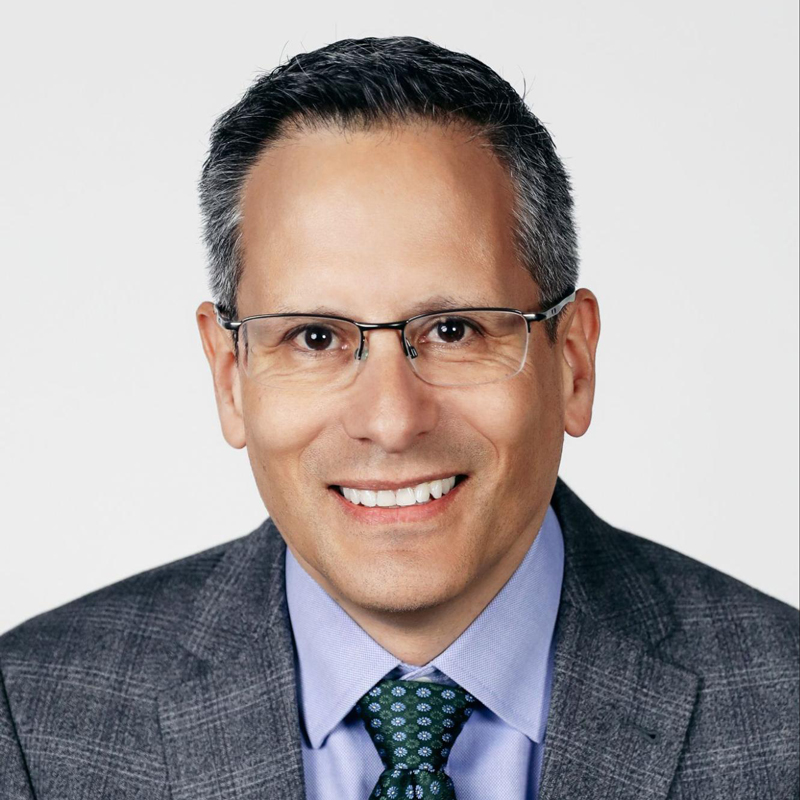
Juan Valle, MB, ChB, MSc, FRCP
CHIEF MEDICAL OFFICER
BOULDER, COLORADO

Juan Valle, MB, ChB, MSc, FRCP
CHIEF MEDICAL OFFICER
BOULDER, COLORADO
Dr. Valle most recently served as a professor and honorary consultant in medical oncology at the University of Manchester and The Christie NHS Foundation Trust in Manchester, UK. Dr. Valle was part of a team establishing the first standard of care for patients with advanced cholangiocarcinoma in 2009 and is a founding member of the International Biliary Tract Cancer Consortium. He chaired the UK National Cancer Research Institute neuroendocrine subgroup and was a member of the hepatobiliary and pancreatic cancer subgroups. His research focused on developing new therapies for pancreatic, biliary, and neuroendocrine cancers, and he has been instrumental in designing and developing many clinical trials.
Throughout his career, Dr. Valle has made significant contributions to the field, authored numerous publications, including over 300 scientific articles, and received multiple research grants to support his work. His research set the standard for patient care in cholangiocarcinoma.
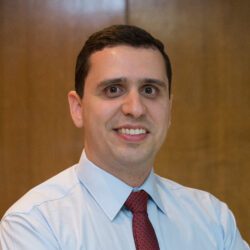
Iron Pires de Abreu Neto, MD

Iron Pires de Abreu Neto, MD
“From a very early stage of my surgical training, I have been extremely fascinated by biliary malignancies. The long and complex surgeries caught my attention at first. Also, the feeling that this was still an unanswered problem prompted and excited me to go deeper in this challenging subject.”
Name: Iron Pires de Abreu Neto MD
Organization: Universidade Federal de São Paulo (Brazil)
Can you tell us a bit about yourself?
I am a HPB and liver transplant surgeon in Brazil, my home country. Although I routinely deal with many other HPB diseases, cholangiocarcinomas has been my main interest. From a very early stage of my surgical training, I have been extremely fascinated by biliary malignancies. The long and complex surgeries caught my attention at first. Also, the feeling that this was still an unanswered problem prompted and excited me to go deeper in this challenging subject. Therefore, I decided to focus my attention on this specific type of rare cancer.
I was mostly dedicated in the past years to surgical training. Nevertheless, I progressively started getting involved with research as well.
I live with my wife and our young boy in São Paulo and have plans of keeping the family growing. I enjoy spending free time with family and friends, and playing tennis is one of my hobbies.
Can you share one or two of your specific research interests?
My main research interests are:
– The role of liver transplantation in the treatment of cholangiocarcinoma.
– Improvements in surgical technique for the achievement of better results in operations for biliary tumors.
– Making complex hepatectomies procedures safer.
Why did you decide to specialize in hepatobiliary cancers?
Because, for sure, we are still not able to offer patients a satisfactory treatment. Despite all the recent advances, outcomes are still poor for most patients.
Can you describe one of the unforgettable moments in your patients care or research that has impacted your career?
I would start highlighting a very nice memory. My visit to Nagoya University in Japan in 2019. That was a life changing experience. There, I met a very dedicated team, absolutely focused on the improvement of surgical treatment of biliary malignancies for more than four decades. My special thanks to Professors Masato Nagino and Tomoki Ebata.
Unfortunately, some sad moments also impacted me a lot. Losing a patient for this disease is always sad, but in a postoperative setting it feels even worse. I’m very sorry for the ones that were not able to recover well after surgery.
Can you tell us one thing collaboration with colleagues could accomplish that you could not accomplish on your own?
I am convinced that collaboration is essential in our battle for better outcomes for the treatment of biliary malignancies. Cholangiocarcinoma surgery is a very complex field. It involves great technical complexity and, in addition, we are dealing with a rare disease. We would never be able to improve our practice without the collaboration of so many institutions around the globe that share their results and achievements.
Treating cholangiocarcinomas is a team effort. Research must be as well.
If you had access to one resource that would move your research forward, what would that resource be?
Awareness. In Brazil, we are still far behind in terms of cholangiocarcinoma research. There are very few people engaged in the study of the disease. If we had means to raise awareness and involve more people in this cause, I believe research would develop much faster.
Of course, funding is also a huge problem. But, for me, the top priority would be to develop a larger research network.
How did you learn about the Cholangiocarcinoma Foundation?
Around 2018, I was searching the internet, trying to find content that would help communicate better with patients, and then I came across the Cholangiocarcinoma Foundation. With time, I could see that the foundation offered a lot more and never stopped following.
Can you tell us why you became a member of the ICRN?
As an ICRN member I will be able to keep contact with experts around the globe and stay up to date on the latest research initiatives on the subject.
I believe being an ICRN member will also help in the development of my research activity in Brazil. Likewise, it will be a pleasure to collaborate with colleagues on global initiatives.
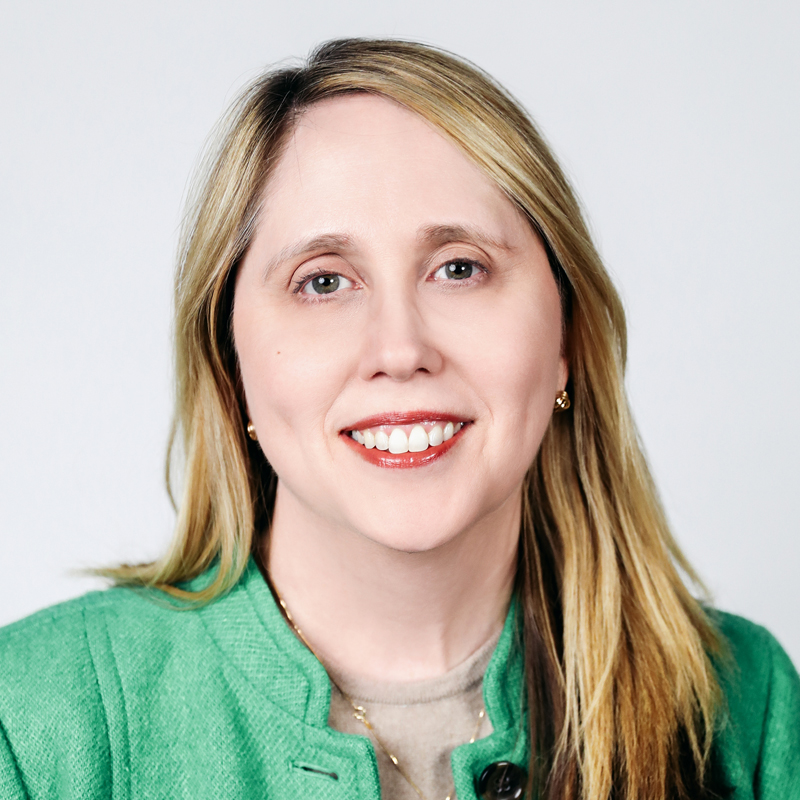
Laura Goff, MD
Vanderbilt University

Laura Goff, MD
Vanderbilt University
Dr. Goff is a medical oncologist who specializes in gastrointestinal cancers, particularly hepatobiliary cancers. Dr. Goff received her medical degree from the University of Texas Health Science Center in San Antonio. She went on to complete a residency in Internal Medicine at the University of Texas Southwestern Medical Center at Dallas. Dr. Goff then moved to Vanderbilt University for fellowship training in Hematology and Oncology. She joined the faculty in the GI Oncology program at Vanderbilt in 2007 and completed a Master of Science in Clinical Investigation in 2008. Additionally, she served as the Associate Director of the Hematology-Oncology Fellowship Program at Vanderbilt from 2009-2019 and has served as the Medical Director for Hematology-Oncology since 2018. She has been a member of the NCI Hepatobiliary Cancers Task Force, the American Society of Clinical Oncology Professional Development Committee, Education Committee and Scientific Program Committee, and the Executive Committee of the International Cholangiocarcinoma Research Network. Dr. Goff’s research focuses on developing the use of new therapeutics in hepatobiliary cancers through clinical trials.
(Precision Therapeutics Initiative Group)
“I loved thinking about GI problems but had no interest in procedures. What I did love was drug development and patients with hepatobiliary cancers had (and still have) tremendous need for new treatments.”
Can you tell us a bit about yourself?
I claim many “hometowns” as I was born in Chicago, spent all holidays in my parents’ hometown of Wichita, Kansas, and grew up outside of Dallas, Texas. I moved around through training at Duke, UT in San Antonio, UT Southwestern and was fortunate to land at Vanderbilt-Ingram Cancer Center for fellowship where I have happily stayed put ever since! Systemic therapy for hepatobiliary cancers was really just beginning, and I was hired to develop our program of clinical trials. In addition to my research, I served as the Associate Program Director for our Hematology-Oncology Fellowship for 10 years and now serve as the Executive Medical Director for the Cancer Patient Care Center at Vanderbilt University Medical Center. I am lucky to have an extremely supportive husband who works in residential architecture and brings that creativity to balance my pragmatism as we raise our much loved son and miniature schnauzer, Dolly (after Ms. Parton).
Can you share one or two of your specific research interests?
I am primarily focused on finding new and better treatments for patients with hepatobiliary cancers particularly through early-phase clinical trials.
Why did you decide to specialize in hepatobiliary cancers?
Out of sheer coincidence, I did a visiting rotation at Memorial Sloan Kettering and was assigned the hepatobiliary consult service. I loved working with the patients and the multidisciplinary teams. In residency, my favorite attending and upper level resident were both gastroenterologists. I loved thinking about GI problems but had no interest in procedures.
What I did love was drug development and patients with hepatobiliary cancers had (and still have) tremendous need for new treatments. Because Vanderbilt is a large liver transplant center, our population of patients was growing just as I was finishing fellowship and we definitely had a need to care for these patients. For me, it was a natural fit.
Can you describe one of the unforgettable moments in your patients care or research that has impacted your career?
Honestly, the formation of a working group at one of CCF’s earliest meetings impacted my career most by establishing cross-country collaboration opportunities and helped highlight how I can make meaningful contributions in these rare cancers. Dr. Katie Kelley, Dr. Maeve Lowery and I were grouped together at that meeting. Over time, our network has expanded with a common mission of generating good studies while supporting each other in the clinical care of our patients.
Can you tell us one thing collaboration with colleagues could accomplish that you could not accomplish on your own?
Everything requires collaboration! CCF recognized this early on and somehow got all of the best minds in the world to work together.
If you had access to one resource that would move your research forward, what would that resource be?
More time
How did you learn about the Cholangiocarcinoma Foundation?
I was introduced to Marion Schwartz by my mentor, Dr. Jordan Berlin while I was still a fellow. He planned to hand over the responsibilities for hepatobiliary tumors at Vanderbilt-Ingram to me and knew to make the connection.
Can you tell us why you became a member of the ICRN?
Becoming a member of the ICRN was a no-brainer. I’m passionate about advancing the care of patients through collaborative clinical trials which is right in line with their mission. Moreover, it is run by such smart, kind, outstanding people that I wanted to be a part of it.
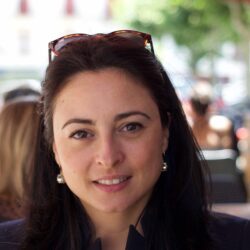
Ana Lleo

Ana Lleo
“I have always been fascinated by cholangiocyte biology and liver immunology, and the more I studied the more realized that cholangiocarcinoma was a major unmet need for patients that needed to be addressed.”
Name: Ana Lleo Prof.
Organization: Humanitas University
Can you tell us a bit about yourself?
I was born in Valencia (Spain) and obtained my degree in Medicine from the University of Milan (Italy) in 2000. I completed my clinical training and received the Board Certification in Internal Medicine and Hepatology in 2006. In the same year, I started my PhD at the University of California-Davis (Davis, CA, USA), where I focused on the study of cholangiocyte biology, liver innate immune response, and the pathogenesis of cholestatic diseases. I went back to Milan in 2010 and joined the Hepatobiliary Immunopathology Lab at the Humanitas Clinical Research Center.
During all this time I was exposed to great mentors and amazing colleagues who encourage me to make a difference through clinical research. I am currently Attending Hepatologist and Associate Professor of Internal Medicine in Humanitas University.
Can you share one or two of your specific research interests?
My scientific carrier has been focused in the study of cholangiocyte biology and liver immunology. Currently, my work involves both laboratory and clinical research. I lead a group of young brilliant people that focuses on clinical and etiopathogenetic aspects of liver cancer, with particular attention for liver immune response. I am particularly interested in dissecting the immune microenvironment of cholangiocarcinoma.
Why did you decide to specialize in hepatobiliary cancers?
It was just good luck. I have always been fascinated by cholangiocyte biology and liver immunology, and the more I studied the more realized that cholangiocarcinoma was a major unmet need for patients that needed to be addressed.
Can you describe one of the unforgettable moments in your patients care or research that has impacted your career?
There is no one moment! Working with liver cancer patients on daily basis make an impact on who you are. You find people that inspire you to do you best, recall who you are as a doctor, and remind you the essence of what life is about.
Can you tell us one thing collaboration with colleagues could accomplish that you could not accomplish on your own?
I deal on daily basis with patients affected of Liver Diseases, including Liver Cancer. Working with colleagues from different backgrounds within a multidisciplinary environment has convince me that, if we collaborate, we can truly make a difference. There is very little, if any, that you can do on you own. Collaboration is essential in cancer research, both clinical and basic.
If you had access to one resource that would move your research forward, what would that resource be?
More funding, more time! More talented young people willing to start a career in high-risk science.
How did you learn about the Cholangiocarcinoma Foundation?
I was invited to participate in a Workshop by Stacey Lindsey, CEO of the Cholangiocarcinoma Foundation (CCF). It was and incredible personal and professional experience. I profoundly admire the work they do and how they are able to involve professionals, patients, and care
givers for a common goal.
Can you tell us why you became a member of the ICRN?
ICRN represents one of the most relevant networks worldwide working on cholangiocarcinoma; it is an honour to be a member of ICRN.
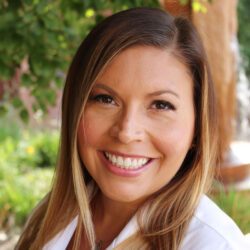
Kristen Spencer

Kristen Spencer
“Hepatobiliary cancers are difficult to treat, and the field is in need of ongoing therapeutic developments based on sound clinic research.”
Name: Kristen Spencer
Organization: Rutgers Cancer Institute of New Jersey
Can you tell us a bit about yourself?
I am a medical oncologist at the Rutgers Cancer Institute of New Jersey. I joined there as an assistant professor in 2017 after completing my residency, fellowship, and chief fellowship at Rutgers Robert Wood Johnson Medical School. Prior to that I obtained my medical degree from the UMDNJ-School of Osteopathic Medicine, as well as a Masters in Public Health at Rutgers University School of Public Health, and my undergraduate degree at Duke University. I see patients as a member of the Gastrointestinal/Hepatobiliary and Developmental Therapeutics Programs at CINJ. I also had specialty research training through the Cancer Therapy Evaluation Program (CTEP) Advanced Drug Development Fellowship and the American Society of Clinical Oncology (ASCO)/American Association for Cancer Research (AACR) Workshop on Methods in Clinical Cancer Research.
In addition to treating patients, I conduct research in early phase clinical studies where I work to bring novel agents from the basic science research laboratories at CINJ to the clinic to help advance the oncology field for patients. I am the author or co-author of several publications, reviews, book chapters, and abstracts, and I present my work nationally. I also participate on the national level as a member of the National Cancer Institute (NCI) Hepatobiliary Task Force, as Chair of the ECOG-ACRIN Developmental Therapeutics Genomics Sub-committee, and as a member of the ECOG-ACRIN Task For on Advancement for Women.
Can you share one or two of your specific research interests?
My research interests focus on hepatobiliary and pancreatic tumors, particularly the use of vaccine and other immunotherapy-based combination approaches to treating these cancers. I am also actively interested in investigating early phase (phase 0 and phase I) compounds.
Why did you decide to specialize in hepatobiliary cancers?
I lost my mother to metastatic colon cancer when I was very young. When I was choosing a specialty within medical oncology to develop a practice, I wanted to honor her in a way. My father said to me, “your mother would want you to work where you are needed.” Hepatobiliary cancers are difficult to treat, and the field is in need of ongoing therapeutic developments based on sound clinic research. Moral of the story is, I went where I was needed!
Can you describe one of the unforgettable moments in your patients care or research that has impacted your career?
I am lucky enough to care for many patients with hepatobiliary tumors, often on clinical trial protocols. I had recently lost a patient on one of those protocols whom I had gotten particularly close to. Though we ultimately lost her battle, she had many small victories along the way. I happened to be sitting on an airplane waiting to taxi out to a conference several weeks later when I got to speaking to someone in the aisle across from me. Believe it or not, without violating any HIPAA laws we discovered she was a dear friend of the patient I had lost, and had been so thankful for the hope provided to her friend by the oncologist whom she had heard about for some time (me!). That experience reminded me that everything comes full circle and we are all in this together, so keep fighting!
Can you tell us one thing collaboration with colleagues could accomplish that you could not accomplish on your own?
This is an easy one. I am currently running a phase I/II study of a combination of radiation, the DNA-PK inhibitor M3814, and the checkpoint inhibitor Avelumab in biliary tract cancers. It is difficult to develop, write, and execute a protocol like this one that requires familiarity with early phase trial design and compounds and specialized radiation techniques. I am lucky to have several collaborators on this project, and without them this novel combination approach would not be being actively investigated now.
If you had access to one resource that would move your research forward, what would that resource be?
Open and unlimited access to compounds for clinical investigation. I share the belief with some of my mentors here that if a drug does not cure a disease, it should be made available to researchers for clinical trial investigation.
How did you learn about the Cholangiocarcinoma Foundation?
I am lucky to have worked with Dr. Milind Javle on several projects, and he was kind enough to involve me in the CCF.
Can you tell us why you became a member of the ICRN?
As a clinical investigator involved in the development of new approaches to treating hepatobiliary tumors, it was important to me to have a network of collaborators in the field for potential research opportunities and to stay up to date on progress in the field. In addition to that, some of the members are really good at karaoke!
If you are one of our Cholangiocarcinoma Foundation Fellowship awardees, how has this Fellowship impacted your career?
It’s difficult to describe all the ways CCF has impacted my career. It wasn’t until I found CCF that I was able to make the connections in the field that I have. Within these connections I have had the blessing of developing several research collaborations, finding true mentors, and growing my presence in the field through publications and presentations. I have also had the pleasure of meeting the incredible patients and family members this is all about. None of this would have been possible without CCF.
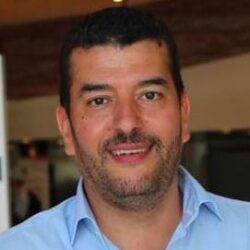
Mohamed Bouattour

Mohamed Bouattour
“I published a paper I think 8 years ago on mixed tumors, and one day I saw that it was cited by the cholangiocarcinoma foundation and quoted … I think… I was I was flattered :)”
Name: Mohamed Bouattour
Organization: Beaujon Hospital
Can you tell us a bit about yourself?
I am born in Tunisia 45 years ago and moved in France at my 26 years old. I am board certified in Gastroenterology-Hepatology and Medical Oncology. I am currently serving as the responsible of the Liver Oncology Unit at Beaujon University Hospital, holding this position since November 2007. This Unit aims to improve the management of patients with liver cancers (including hepatocellular carcinoma and biliary tract cancers, and rare liver tumors) and to offer them all validated treatment approaches and enrollment in clinical trials. I acquired my expertise in the field of the liver tumors during these years, and I am implicated in several preclinical and clinical researches regarding these topics. I work in close collaboration with a multidisciplinary skilled team including, liver surgeons, radiologists, oncologists, hepatologists and pathologists, to improve the management of patients with liver cancers. I am an investigator and sub investigator for several phase 1, 2 and 3 clinical trials for patients with primary liver cancers. I am a member of several national and international societies such as AASLD, EASL, ILCA and ASCO.
Personally, I am married with a pretty oncologist; we have a very nice boy, waiting for a happy event when my beauty girl comes in this world. We love travelling, sharing cooking and meeting other cultures.
Can you share one or two of your specific research interests?
I am especially involved and interested in management of primary liver cancers (hepatocellular carcinoma, biliary tract cancers and rare liver tumors) with a dedicated Unit only to manage these diseases. I am interested in new drugs and treatments development including (systemic treatment, genetic aberration – based medicine, personalized medicine…) as well as devices advances for treatment of primary liver cancers. Our group tries also to identify biomarkers of response and resistance to systemic treatments and involved in basic and clinical researches.
Why did you decide to specialize in hepatobiliary cancers?
I was a young investigator in 2010, when I met a wonderful multidisciplinary group in Beaujon Hospital. The majority of radiologist, pathologist, oncologist and surgeons were very interested in primary liver cancer and they work a lot to improve diagnosis management and care of patients with these disease. Many of them have a very long experience in this field, involved in many impacting works and papers. They transmit me their passion of these diseases.
Can you describe one of the unforgettable moments in your patients care or research that has impacted your career?
One day, I started to follow a very young Italian-native patient, married with two young children. I have known her for 4 years, with each medical visit; she brings me a little note or a cartoon from her children, to thank me for what we are doing for her. Every Christmas, they make their typical Italian cake the Panettonne. Every time I think about it, about all my patients with their little intentions, I know why I’m fighting for them too…
Can you tell us one thing collaboration with colleagues could accomplish that you could not accomplish on your own?
I will say, probably nothing, without our fantastic collaborative team. Nurses, nurse’s coordinators, doctor’s colleagues, specialists… Everyone I owe him what is already accomplished and what will be accomplished. And of course, my patients, who trust us, who follow our recommendations, who are motivated to participate in a clinical trial, to be part of a cohort to improve knowledge on these diseases.
If you had access to one resource that would move your research forward, what would that resource be?
All tumor samples in the world ????
How did you learn about the Cholangiocarcinoma Foundation?
Almost by chance, I published a paper I think 8 years ago on mixed tumors, and one day I saw that it was cited by the cholangiocarcinoma foundation and quoted … I think… I was I was flattered :)…After that, I make researches on the internet to know about their missions…
Can you tell us why you became a member of the ICRN?
I think that without international cooperative work, patient’s improved care and prognosis will not be achieved before long decades. This international cooperation, knowledge and experience sharing yield a better understanding of the disease and strengthening of our forces to fight this disease
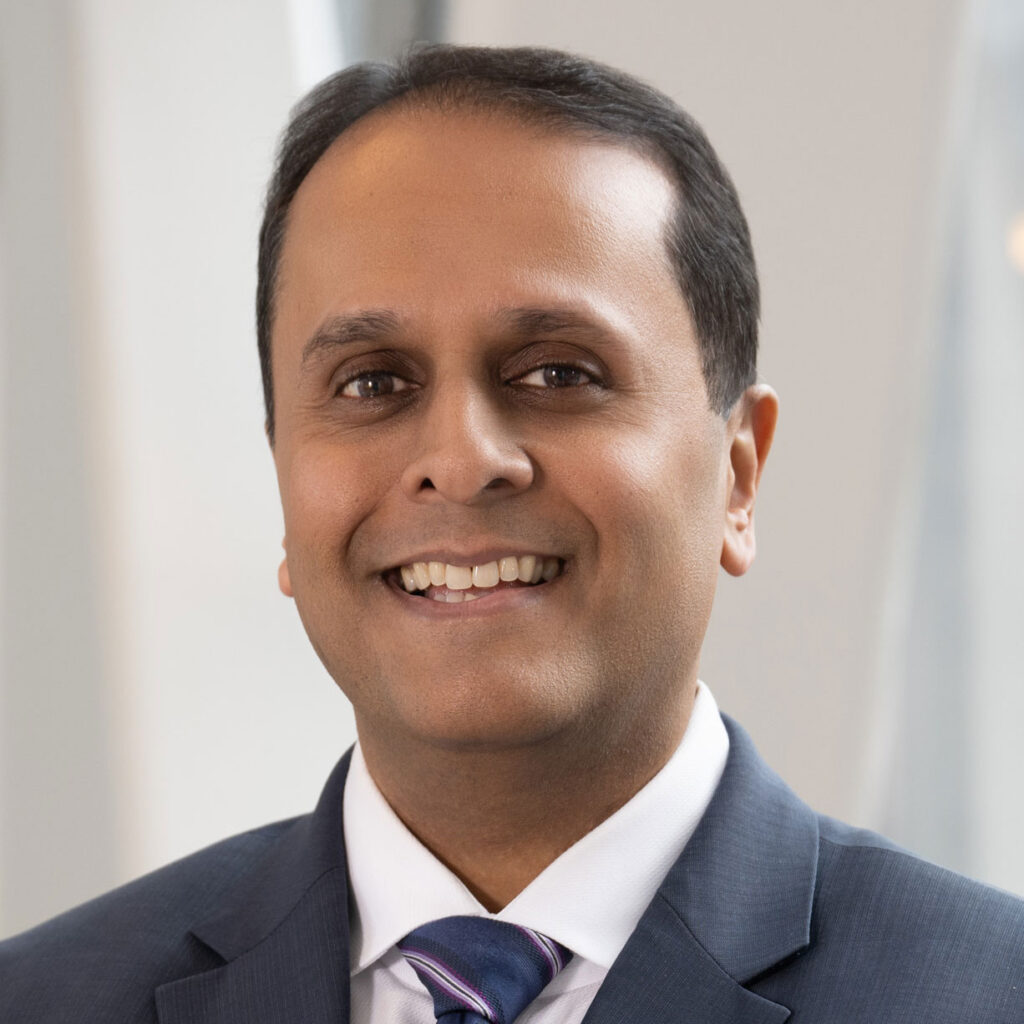
Shishir K. Maithel, MD
Northwestern University

Shishir K. Maithel, MD
Northwestern University
Dr. Maithel is a Professor of Surgery in the Division of Surgical Oncology at Emory University School of Medicine, and the Scientific Director of the Emory Liver and Pancreas Center and Katz Foundation Research Program in Surgical Oncology. He is a member of the Discovery and Developmental Therapeutics Research Program at Winship Cancer Institute. He is leading several national clinical trials. His research interests focus on identifying tumor-specific molecular biomarkers as predictors of treatment outcomes for hepatobiliary cancers.
(Neoadjuvant Targeted Therapy Initiative Group)
“I continually learn from and am inspired by the strength of my patients on a daily basis. Patients are placed in positions where they must endure so much more than I have ever experienced in my own life.”
Can you tell us a bit about yourself?
I am a Professor of Surgery, Scientific Director of the Emory Liver and Pancreas Center, and Director of the Katz Foundation Research Fellowship in Surgical Oncology at Emory University, Winship Cancer Institute.
Can you share one or two of your specific research interests?
Along with leading multiple collaborative research efforts across the United States and being the National Principal Investigator of the US Extrahepatic Biliary Malignancy Consortium, I am leading several clinical trials that focus on delivering novel neoadjuvant therapy regimens to patients prior to undergoing resection of their tumors.
Why did you decide to specialize in hepatobiliary cancers?
There is so much to learn in treating these cancers. The research possibilities and opportunities for clinical trials was very attractive to me. Furthermore, as a Surgical Oncologist, I found the anatomy, physiology, and technical challenges in the operating room very appealing.
Can you describe one of the unforgettable moments in your patients care or research that has impacted your career?
I continually learn from and am inspired by the strength of my patients on a daily basis. Patients are placed in positions where they must endure so much more that I have ever experienced in my own life. Their demonstration of the resilience of the human spirit is truly inspiring on a daily basis.
Can you tell us one thing collaboration with colleagues could accomplish that you could not accomplish on your own?
Conducting clinical trials and quality research is all about cooperating and collaborating with colleagues. I could not have accomplished any of my research without the support, mentorship, and friendship from my colleagues around the country and world.
If you had access to one resource that would move your research forward, what would that resource be?
An endless pot of money.
How did you learn about the Cholangiocarcinoma Foundation?
I was introduced to the CCF by my colleague Dr. Flavio Rocha in 2015.
Can you tell us why you became a member of the ICRN?
The ICRN provided a strong and rich environment to develop research ideas and a vast network in which to conduct clinical trials.

Thomas Karasic

Thomas Karasic
“Treating hepatobiliary cancers is one of the ultimate team sports in oncology. I get to work with smart and dedicated colleagues in hepatology, surgical oncology, transplant surgery, diagnostic and interventional radiology, radiation oncology, and pathology daily.”
Name: Thomas Karasic
Organization: University of Pennsylvania
Can you tell us a bit about yourself?
I am a medical oncologist at the University of Pennsylvania who specializes in the treatment of hepatobiliary and pancreatic cancers.
Can you share one or two of your specific research interests?
My research is focused on clinical trials in immunotherapy in hepatocellular carcinoma and biliary tract cancers. I am also interested in expanding the role of liver transplant for patients with hepatobiliary cancers.
Why did you decide to specialize in hepatobiliary cancers?
Treating hepatobiliary cancers is one of the ultimate team sports in oncology. I get to work with smart and dedicated colleagues in hepatology, surgical oncology, transplant surgery, diagnostic and interventional radiology, radiation oncology, and pathology on a daily basis. For patients who undergo liver transplantation, the team grows even bigger. It is incredibly rewarding to work within such a team to help patients who are often incredibly sick and need all hands on deck.
Can you describe one of the unforgettable moments in your patients care or research that has impacted your career?
One of the first patients I treated with immunotherapy for hepatocellular carcinoma was a woman who developed ascites due to a large new liver tumor. She was unable to get embolization safely and did not tolerate sorafenib and so she gave away all of her Earthly possessions and moved to Philadelphia to live with her son. After a single dose of nivolumab, her ascites and liver function began to improve, and she ended up having a complete response to therapy. She has been able to remain in remission off of treatment and see the birth of her grandson. These success stories with immunotherapy in hepatobiliary cancers are what drive me to continue clinical research to expand the reach of these treatments to more patients.
Can you tell us one thing collaboration with colleagues could accomplish that you could not accomplish on your own?
I enjoy working with my immunology colleagues to learn lessons about novel immune treatments in other cancers and find ways to apply those treatments to hepatobiliary cancers. I also hope that one day this collaboration will help determine upfront which patients with liver cancers are likely to respond to immunotherapy and which need a different approach.
If you had access to one resource that would move your research forward, what would that resource be?
Many patients with cholangiocarcinoma miss out on clinical trials or curative procedures such as liver transplant because their doctors are not aware of the options. I believe that all patients with cholangiocarcinoma should receive an opinion at a major center specializing in treatment, and better patient and physician education as well as philanthropic support to overcome social barriers is critical to improving patient enrollment in cholangiocarcinoma clinical trials.
How did you learn about the Cholangiocarcinoma Foundation?
I first heard of the Cholangiocarcinoma Foundation when I was a fellow attending GI ASCO and by chance sat at a table with Katie Kelley at a mentoring event.
Can you tell us why you became a member of the ICRN?
Being a member of the ICRN helps connect me with colleagues across the world who are also dedicated to treating cholangiocarcinoma and helps keep me connected with the latest research
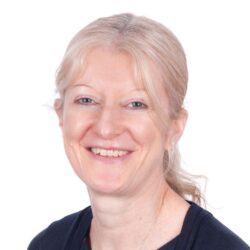
Mairead G McNamara

Mairead G McNamara
“One can have an idea, but it takes many (junior to senior and multidisciplinary) to tease out, support and challenge the intricacies, allowing for more mature development of a potentially practice-changing initiative.”
Name: Mairead G McNamara Dr
Organization: University of Manchester/The Christie NHS Foundation Trust
Can you tell us a bit about yourself?
I am a Senior Lecturer and Honorary Consultant at the University of Manchester and The Christie NHS Foundation Trust, Manchester, United Kingdom (UK) since 2014. I completed my Medical training in Ireland and then did a three year clinical research fellowship in Princess Margaret Cancer Centre, Toronto, Canada before moving to the UK. Prior to studying Medicine, I was awarded a degree in Biochemistry and a PhD in Neuropharmacology (I spent 6 months of my PhD in the University of Mississippi Medical Centre, Jackson, Mississippi). I now treat patients with hepatopancreaticobiliary (HPB) malignancies and neuroendocrine neoplasms (NENs).
Can you share one or two of your specific research interests?
My research interests span across the disease group malignancies that I treat (translational [specifically aiming to gain a better understanding of the biology of these diseases and identifying predictors for response, focusing on liquid biopsies and the microbiome] and clinical, including phase I to III clinical trials).
Why did you decide to specialize in hepatobiliary cancers?
As I went through my specialist Medical Oncology training, I was most drawn to the sub-specialities of gastrointestinal cancer and neuro-oncology. In 2011, on commencing my clinical research fellowship in Toronto under the mentorship of the eternally enthusiastic and inspiring Professor Jennifer Knox, I became more exposed to patients with hepatobiliary malignancies and the burgeoning clinical and translational research in this area. I was introduced to the resources, people and societies behind these breakthroughs and ambitions, and wished to become an influential part of this evolutionary process.
Can you describe one of the unforgettable moments in your patients care or research that has impacted your career?
I thought about this for a while and the “patient zero” for me was probably an inpatient that I saw as a Medical student when I was rotating through Medical Oncology in an Irish hospital. They had a very aggressive malignancy, with new subcutaneous lesions appearing daily, and they had exhausted all standard lines of treatment. I read up about the disease and came across a recent research abstract reporting on a novel therapeutic option. I told the registrar (resident) looking after the patient and they asked for a copy of the abstract and passed it on to the consultant (staff) responsible for the patient’s care, and this was then taken into consideration as part of their management plan. From then on, Medical Oncology, with its associated potential for instigating meaningful changes in patient outcomes, was the path that I wanted to pursue.
Can you tell us one thing collaboration with colleagues could accomplish that you could not accomplish on your own?
One can have an idea, but it takes many (junior to senior and multidisciplinary) to tease out, support and challenge the intricacies, allowing for more mature development of a potentially practice-changing initiative.
If you had access to one resource that would move your research forward, what would that resource be?
A more integrated efficient system for opening clinical trials (investigator-initiated and commercial) in a significantly shorter time frame.
How did you learn about the Cholangiocarcinoma Foundation?
I learnt about the Cholangiocarcinoma Foundation from Professor Jennifer Knox in Toronto, during my fellowship there, and was envious of her attendance at the annual conference, and being at the forefront of cholangiocarcinoma programmes, proposals and community.
Can you tell us why you became a member of the ICRN?
I became a member of the ICRN to self-educate, integrate, collaborate and apprise myself of potential future therapeutic opportunities for patients with a diagnosis of cholangiocarcinoma.
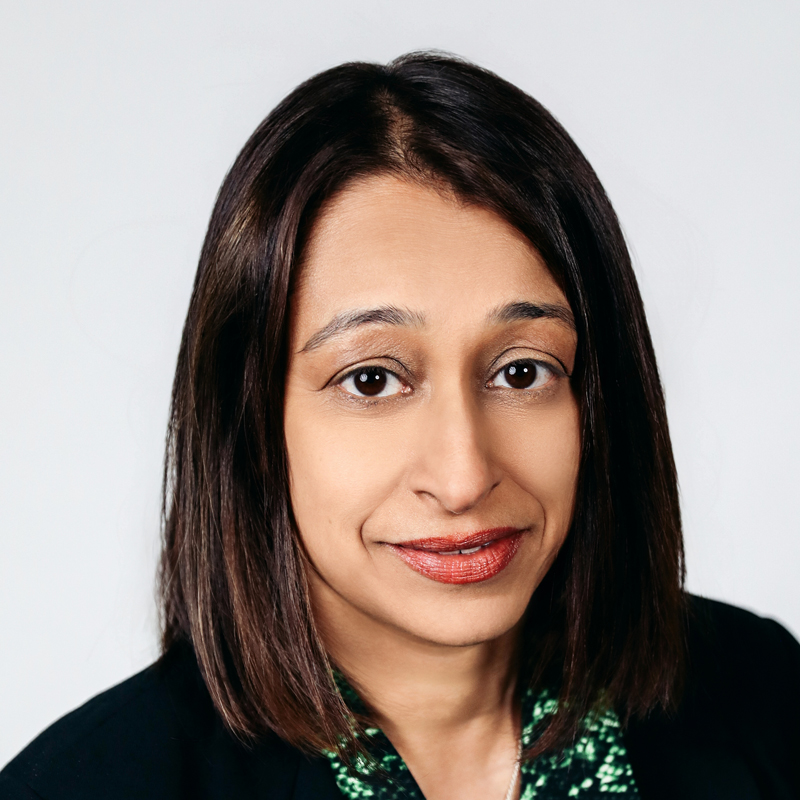
Nilo Azad, MD
Johns Hopkins University
Baltimore, Maryland

Nilo Azad, MD
Johns Hopkins University
Baltimore, Maryland
Dr. Azad is an Associate Professor of Oncology and a member of the Gastrointestinal Oncology Program within the Sidney Kimmel Comprehensive Cancer Center (SKCCC). She completed her fellowship in Medical Oncology at the National Cancer Institute and became a member of our faculty in July 2008. Since joining the faculty of the SKCCC at Johns Hopkins, Dr. Azad is the PI of numerous early phase clinical trials in solid tumors and gastrointestinal cancers. Dr. Azad is a clinically active medical oncologist and is the co-leader of the NCI funded UM1 Developmental Therapeutics clinical research program at the SKCCC, as well as the Cancer Genetics and Epigenetics Program . She is a member of both the Epigenetics and Colon Cancer Stand Up 2 Cancer Dream Teams, serving as a Principal on the latter. She has been a member of the NCI Colon Cancer Task Force, the Advisory Board of the Biden Cancer Initiative, and the Executive Board of The Cholangiocarcinoma Foundation, now serving as Vice-Chair, among others.
(Precision Therapeutics Initiative Group)
“We have been given such a gift to have found this particular calling, working with cancer patients.”
Can you tell us a bit about yourself?
I am a very fortunate physician that went into medicine thinking I was going to take care of patients, and by happenstance over the course of my training, was exposed to wonderful mentors and research leaders who whet my appetite to make a difference through clinical research. I am a faculty member at Johns Hopkins, where I work with the best group of doctors and other medical professions to take care of patients while working to increase the options available to them. I have a wonderful family and group of friends who provide my life’s foundation. I consider myself very lucky to get to do what I do.
Can you share one or two of your specific research interests?
I have an interest in combining novel agents to advance the therapeutic options for advanced cholangiocarcinoma patients. I am particularly interested in epigenetic and immunotherapies, both together, and how epigenetic alterations may impact the immune response.
Why did you decide to specialize in hepatobiliary cancers?
Good luck. I was running an early phase clinical trial in advanced solid tumors early in my career and saw some possible benefit for cholangiocarcinoma patients. I decided to open a dedicated trial arm to cholangiocarcinoma, and then it was off to the races. I began looking at all my drug development though the lens of how it might help cholangiocarcinoma patients, and how we might modify strategies to make them more appropriate to cholangiocarcinoma biology.
Can you describe one of the unforgettable moments in your patients care or research that has impacted your career?
The beauty of our job is that there is no one moment that encapsulates the meaning of what we do. Rather, our careers are an amalgamation of hundreds of people we have taken care of and worked with — all of whom have taught of the essence of what life is about. Family. Friendship. Health. Love. Generosity. Suffering. Perseverance. Intellectual Joy. We have been given such a gift to have found this particular calling, working with cancer patients.
Can you tell us one thing collaboration with colleagues could accomplish that you could not accomplish on your own?
The underpinnings of cancer biology are so complex that no one investigator has the needed expertise to understand all of the nuances of any given approach. Team science allows for us to assemble groups of people with varied skill sets and knowledge bases which dramatically improve the chance we will find a new treatment and eventual cure for this cancer.
If you had access to one resource that would move your research forward, what would that resource be?
More funding. There are so many exciting ideas that are delayed by the lack of funding to move them forward. For example, we have a personalized vaccine study that it extraordinarily expensive to generate for each patient. This kind of personalized immunotherapy approach is presently limited due to lack of funding.
How did you learn about the Cholangiocarcinoma Foundation?
Honestly, I don’t remember not knowing about CCF – it is so ubiquitous in cholangiocarcinoma patient and researcher circles.
Can you tell us why you became a member of the ICRN?
It is an exciting group of people that pushes me to refine my ideas and make them into reality and work with others to do the same with theirs. It is an incredibly giving group of caring doctors and researchers. What a great community.
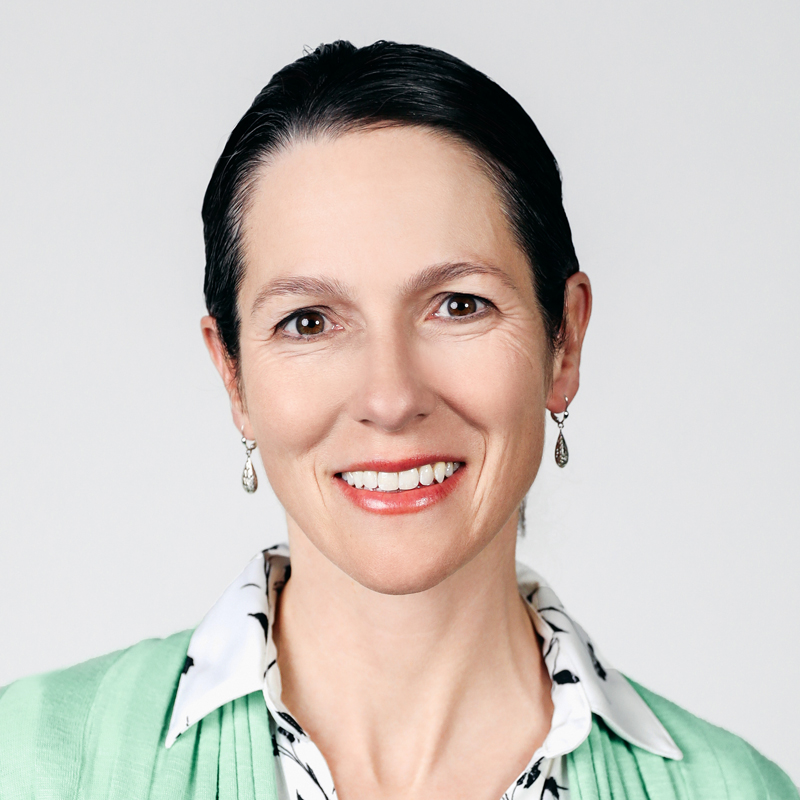
Katie Kelley, MD
UCSF

Katie Kelley, MD
UCSF
“Seeing some of my cholangiocarcinoma patients achieve complete and prolonged responses to immunotherapy has been among the most unforgettable, impactful, and meaningful moments in my career…”
Name: Katie Kelley
Email: katie.kelley@ucsf.edu
Organization: UCSF
Can you tell us a bit about yourself?
I am a GI Medical Oncologist at UCSF and lead our hepatobiliary cancer clinical research program.
Can you share one or two of your specific research interests?
Developing new targeted therapies and immunotherapies for biliary tract cancers and hepatocellular carcinoma.
Identifying molecular and clinical factors associated with risk and response in hepatobiliary cancers.
Why did you decide to specialize in hepatobiliary cancers?
I wanted to contribute my efforts to a complex family of cancers — and the patients with those cancers — with enormous unmet need in oncology.
Can you describe one of the unforgettable moments in your patients care or research that has impacted your career?
Seeing some of my cholangiocarcinoma patients achieve complete and prolonged responses to immunotherapy has been among the most unforgettable, impactful, and meaningful moments in my career and has led to my goal of finding new combinations to improve patients’ chances of experiencing an immune response.
Can you tell us one thing collaboration with colleagues could accomplish that you could not accomplish on your own?
Collaboration is essential in cancer research, especially in rare cancers with even rarer molecular subgroups. Completing clinical trials of targeted therapies such as FGFR2 inhibitors or IDH1 inhibitors would not be possible without large collaborations, and these collaborations enrich all of our understanding of the disease.
How did you learn about the Cholangiocarcinoma Foundation?
Stacie sent me an email long ago to introduce me to collaborators across the country — a collaboration which is ongoing to this day!
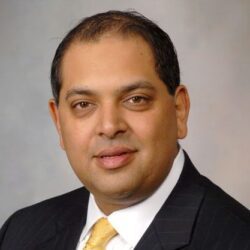
Kabir Mody

Kabir Mody
“Collaborations enable joint brainstorming and discovery of new questions and ways of looking at things, in addition to enabling collection of larger amounts of data needed to answer important questions we have about this malignancy with more rigor and confidence.”
Name: Kabir Mody
Organization: Mayo Clinic
Can you tell us a bit about yourself?
I am of Indian descent, born and raised here in the US, mostly in New England. After college in Boston and a masters in NYC, followed by medical school in Grenada, I pursued internal medicine residency at St Luke’s-Roosevelt Hospital in NYC and fellowship at Dartmouth Hitchcock Medical Center in New Hampshire. I then settled here in northern Florida at Mayo Clinic and am blessed and excited to work with such passionate, intelligent, patient-focused colleagues both here at Mayo Clinic and around the country. I live with my wife Nicole and our 2 young children, Grace and Nicholas. I love to play tennis, golf and pretty much any sport. I am also a die hard world traveler, never missing an opportunity to go somewhere new!
Can you share one or two of your specific research interests?
My 2 primary research interest are:
a. the use of circulating tumor DNA in hepatobiliary malignancies
b. immunotherapy in hepatobiliary malignancies – in particular, novel therapeutics and incorporation into multi-modality treatment strategies, and modeling of hepatobiliary malignancies in the lab to enable personalized immunotherapy treatment for patients.
Why did you decide to specialize in hepatobiliary cancers?
I was drawn to hepatobiliary cancers, particularly cholangiocarcinoma, after an unforgettable patient I cared for early in my hematology/oncology fellowship. Realizing the immense need for attention to the disease, research in the disease, and newer more effective treatments for patients, I immediately dedicated myself and my career to advancing the field for patients and toward a cure.
Can you tell us one thing collaboration with colleagues could accomplish that you could not accomplish on your own?
In an uncommon cancer, such as cholangiocarcinoma, collaboration with colleagues dedicated to the care of patients with this disease is key. Collaborations enable joint brainstorming and discovery of new questions and ways of looking at things, in addition to enabling collection of larger amounts of data needed to answer important questions we have about this malignancy with more rigor and confidence. Additionally, these collaborations, such as that championed by the ICRN, stimulate thought provoking discussions and summon collective motivation and dedication to pursuing significant progress in this disease. These collaborations often also allow us the opportunity to involve patients in research efforts, offering their vitally important perspective.
If you had access to one resource that would move your research forward, what would that resource be?
More research funding dedicated specifically toward hepatobiliary malignancies.
How did you learn about the Cholangiocarcinoma Foundation?
I was initially introduced to the foundation by colleagues here at Mayo Clinic, and invited to come to the annual meeting in 2015. I immediately fell in love with the people involved, their collective motivation and passion for the disease. I have been actively involved ever since.
Can you tell us why you became a member of the ICRN?
I was fortunate to be involved with the Cholangiocarcinoma Foundation during the inception of the ICRN, and have been excited to be involved as it affords us, as a community, to collectively and collaboratively mobilize toward a single goal on the research front in an organized fashion. The collaboration has stimulated thought provoking conversations and questions, and has brought us together with key industry and non-profit partnerships, all of which has already benefited our patients and continues to help drive dedicated research into cholangiocarcinoma and progress toward a cure.
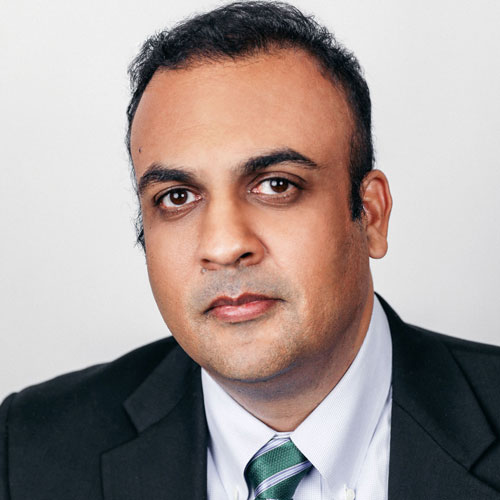
Mitesh Borad, MD
Mayo Clinic

Mitesh Borad, MD
Mayo Clinic
Dr. Borad is an Assistant Professor of Medicine and the Director of Phase I Drug Development at Mayo Clinic, Phoenix, Arizona. Before joining Mayo Clinic, he spent three years at the Translational Genomics Research Institute as a Genomics Medicine Scholar. He has been serving on the NCI Hepatobiliary Task Force since 2011. His research interests focus on exploring various molecular and immunological subtypes and discovering novel targeted therapies for providing precision medicine for hepatobiliary and pancreatic cancer patients.
(Precision Therapeutics Initiative Group)
“Ultimately, cancer is a genetic disease. It seems that we are only at the tip of the iceberg in the precision medicine era. I am hoping that we find magic bullets like imatinib (Gleevec) for all cancers.”
Can you tell us a bit about yourself?
I am a physician-scientist at the Mayo Clinic. My work involves both laboratory and clinical studies. I feel very fortunate to have wonderful colleagues both here and elsewhere, access to cutting edge resources, and a constant spirit of innovation and team science. I am always amazed by how courageous and altruistic our patients our in this journey and am always honored for them entrusting their care to our team. For better or worse, my endeavors are directed towards findings cures (and by that I mean collectively, not myself of course) for some of the most challenging cancers – liver and biliary tract cancers. In my spare time, I do enjoy traveling, cuisines of all types, cinema and kicking back with family and friends.
Can you share one or two of your specific research interests?
The human genome and gene therapy fascinate me at a scientific level. Ultimately, cancer is a genetic disease. It seems that we are only at the tip of the iceberg in the precision medicine era. I am hoping that we find magic bullets like imatinib (Gleevec) for all cancers. After arriving at Mayo Clinic, I was introduced to the notion of “oncolytic viruses”, genetically modified viruses with propensity to infect tumor cells relative to normal cells and “armed” with anything in the scope of imagination – immunomodulators, targeted antibodies, toxins and reporter agents for imaging and tracking. In my laboratory, we have been endeavoring to create precision medicine enabled oncolytic viruses, in an effort to integrate these two fascinating landscapes. Broadly along these line, I am a firm believer that we will revisit Cancer Gene Therapy, a field that has fallen by the wayside, due to limitations in therapeutic delivery.
Why did you decide to specialize in hepatobiliary cancers?
Like the vast majority of things in my career, it was purely be serendipity. In 2010, At Mayo Clinic, with colleagues from the Translational Genomics Research Institute (TGen), we had launched one of the first efforts to perform whole genome and transcriptome sequencing in a real-time clinical setting. At the time, I had a number of treatment refractory patients with cholangiocarcinoma in my practice and had no idea what to do them. I enrolled them into the study, with considerable skepticism, not expecting to find much. To our surprise, more than half the patients had “actionable” findings, including FGFR2 fusions. There were no FGFR specific inhibitors at the time, but luckily drugs such as ponatinib and pazopanib had FGFR inhibitory activity and were available (after much pleading to pharma execs). Fortunately, all the patients we treated had some clinical benefit. Before I knew it, everyone was referring cholangiocarcinoma patients our way and it become apparent to me that I would need to learn more about the disease and its nuances, if I were to have any degree of credibility living up to the trust the patients were putting in us.
Can you describe one of the unforgettable moments in your patients care or research that has impacted your career?
There are definitely many “forgettable” moments. During my time at TGen, we were developing vismodegib, the world’s first smoothened inhibitor, along with other institutions, in first-in-human studies. I had been treating a patient with metastatic basal cell cancer at the time and the heat shock protein inhibitor he had been on, had been ineffective. The timing was quite fortuitous as we had just opened the trial. After having to jump through innumerable hoops before the patient met the eligibility barricade, he was all set to go. The team quickly realized that this was a momentous occasion as he would be the first patient in the world treated with the drug. The next day, the research nurse, my good friend and colleague Dr. Raoul Tibes and the pharmacist clamored together to get a photo-op with “Patient 1”. There was much friendly debate as to who should get the credit – the treating physician (myself), the nurse (for administering the drug) or the pharmacist (for ensuring accuracy of investigational drug product). Luckily, the patient settled the score and said he should get the credit because he was the one taking it, and of course, he was right ! It was a reminder that in our line of work, humility is absolutely essential. I always remember that incident when I see things going out of hand in this regards when “experts” in our field get carried away sometimes.
Can you tell us one thing collaboration with colleagues could accomplish that you could not accomplish on your own?
I was schooled in team science from the outset. As such, it is hard for me to imagine things one can really do on their own. Medicine and science have become vastly complex and the pace of knowledge and change has become exponential. It would be foolhardy to think that any one individual could have mastery over enough areas to credibly be an expert. I would want to give a shout out to all of the unsung heroines and heroes in this team sport – patients and their families, nurses, pharmacists, maintenance experts and many, many others. Without their selfless efforts, the scientific teams would not achieve any of the glories they are afforded.
If you had access to one resource that would move your research forward, what would that resource be?
If you thought, I would have said money, you are wrong. I wish there was more appetite for high-risk, high-reward research. All the things we do routinely now, came about through tectonic shifts, not through the safe and underambitious proposals that populate the research landscape after every big shift in the field. I also wish people could share their ideas more freely. Currently, this does not happen because folks want to hold something back so that can be the one to get the next grant, patent or credit for the big paper everyone will cite. I totally understand that this kind of thinking would be considered utopian and stating such things would make others wonder if I live in an alternate reality. There are many senior colleagues and friends who I know have done it all, and already made their mark. It would be quite refreshing to see this “been there, done that” group try to set a new trend towards achieving solutions faster by sharing their ideas openly and selflessly. I am certain our patients expect this of us and there is nothing like being a trendsetter once you have kind of plateaued in academia.
How did you learn about the Cholangiocarcinoma Foundation?
I was invited to participate in a Workshop some years ago by Stacey Lindsey, CEO and Founder of the Cholangiocarcinoma Foundation (CCF). She had assembled physicians and scientists from a number of institutions in Salt Lake City on that occasion. From what I can recall, we all went through these personality assessments, which I thought at the time, was quite peculiar. I think the goal of the exercise was to see if people with very different styles could actually work together to overcome a challenging problem such as cholangiocarcinoma. I don’t think anyone from the group has remotely changed their personalities, but we have all learned to work together despite our idiosyncrasies, become good friends and are united by a common goal.
Can you tell us why you became a member of the ICRN?
About five years ago, at the Annual Cholangiocarcinoma Foundation Conference, Stacie Lindsey asked for ideas on how the Foundation could impact research in the field. Having seen the success of the Pancreatic Cancer Research Team (PCRT), that my mentor Dr. Daniel Von Hoff had started, I suggested consideration of initiating a clinical-translational research network. Being the go-getter she is, in quick order, Stacie corralled my good friend and colleague, Dr. Milind Javle from Anderson and myself, to launch the International Cholangiocarcinoma Research Network (ICRN). Enthusiasm for ICRN was incredible and before we knew it, institutions from all around the world had signed up. Expertise was across the board – translational science, surgery, transplant, interventional radiology, radiation oncology, gastroenterology/hepatology, medical oncology, diagnostic radiology, interventional radiology and pathology. Being a non-profit endeavor, this was largely a volunteer activity and it was really heartwarming to see what are generally incredibly busy folks, being so giving of their time. Here we are five years later. In my mind it is still an experiment in evolution and showcases the power of people working together, realizing that in an uncommon cancer, there is simply no other way.
If you are one of our Cholangiocarcinoma Foundation Fellowship awardees, how has this Fellowship impacted your career?
I did not have the good fortune of even being an applicant. However, I am now the proud mentor of one of the 2021 awardees (Dr. Alexander Baker). The impact CCF has made on supporting the bright, young minds who will solve the cholangiocarcinoma riddle, cannot be emphasized enough.
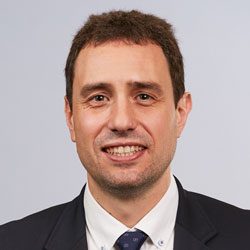
Jesus Banales
Biodonostia Health Research Institute – Donostia University Hospital San Sebastian (Spain)

Jesus Banales
Biodonostia Health Research Institute – Donostia University Hospital San Sebastian (Spain)
“I find the liver a very exciting organ, with unique regenerative capacity and immunobiology, and major functions for the human body.”
Name: Jesus Banales
Organization: Biodonostia Health Research Institute – Donostia Univ. Hospital (BHRI-DUH), San Sebastian (Spain)
Can you tell us a bit about yourself?
I was born in Pamplona (Spain) in 1979, graduated in Biochemistry (2001) and obtained my PhD (2006) from the Univ. Navarra (UNAV) studying the molecular mechanisms of bile flow generation/regulation in healthy and cholestatic conditions. Then, I moved to the Mayo Clinic (Rochester, MN) to carry out a posdoc (2006-2008, 2010; under the supervision of Prof. Nicholas F. LaRusso) focused on the study of the sensory features of the cholangiocyte primary cilium and the pathogenesis of polycystic liver diseases. After my training in National (UNAV) and International (Servier Laboratories, Paris; Univ. Colorado, USA; Mayo Clinic, USA) Institutions, I joined the BHRI-DUH (San Sebastian, Spain) in 2012 as Head of the Liver Diseases Group, which currently contains 3 subgroups and 30 multidisciplinary scientists (molecular biologists, hepatologists, oncologists, radiologists and surgeons). Our group is focused on studying the molecular mechanisms involved in liver pathobiology (cholestasis, chronic liver injury, polycystic liver diseases, non-alcoholic fatty liver disease, cirrhosis, hepatocellular carcinoma and cholangiocarcinoma), and looking for new diagnostic, prognostic and therapeutic strategies. In 2020 I was promoted to Professor of Biomedine at Ikerbasque (Basque Foundation of Science).
Can you share one or two of your specific research interests?
Regarding cholangiocarcinoma, we are interested in the study of the genetic, epigenetic and molecular mechanisms involved in the malignant transformation of cholangiocytes, and in the mechanism of cancer progression, in order to search for accurate non-invasive biomarkers (diagnostic and prognostic) and new targets for therapeutic intervention. Moreover, in collaboration with chemists from the Basque Country, we are developing new chemotherapeutic drugs for their preclinical evaluation in cholangiocarcinoma. Finally, we are deeply collaborating within the European Network for the Study of Cholangiocarcinoma (ENS-CCA; www.enscca.org / www.eurocholangionet.eu) for the multidisciplinary study of this cancer within international collaborative research programs, including the European Cholangiocarcinoma Registry (E-CCA Registry) of patients.
Why did you decide to specialize in hepatobiliary cancers?
All my scientific carrier has been focused in the study of liver pathobiology. I find the liver a very exciting organ, with unique regenerative capacity and immunobiology, and major functions for the human body. In particular, I put special attention into the biliary system, evaluating the role of cholangiocytes in the regulation of the bile flow and immune-tolerance, as well as their alterations under different cholangiopathies, including cholangiocarcinoma. Due to the low awareness and knowledge on cholangiocarcinoma, and the dismal outcome of patients this cancer, I decided in 2012 to focus my attention and studies in cholangiocarcinoma. Then, in 2015, together with a group of friends and colleagues from the field, we created ENS-CCA, which is currently an important scientific network for the multidisciplinary study of cholangiocarcinoma, and an EASL (European Association for the Study of the Liver) consortium.
Can you describe one of the unforgettable moments in your patients care or research that has impacted your career?
An unforgettable moment was the first time I attended the Cholangiocarcinoma Foundation Meeting in 2019. I became so impressed about such unique meeting, which involves scientists, clinicians, patients, caregivers, advocates, and pharmaceutical companies with the only aim to improve patient´s care and life. I was impressed about the personal support and recognition received by the patients, which strongly motivate me for keep investigating on this cancer.
Can you tell us one thing collaboration with colleagues could accomplish that you could not accomplish on your own?
Science is a “we” not an “I”. This is a team effort that requires fair collaborations with other groups to move faster and better. ENS-CCA and ICRN are good examples of the importance of international collaborations. In science, there are multiple things interesting but less important. The important goal for cholangiocarcinoma is to improve the life of the people, so we must not to forget what is important when investigating interesting issues, and priorate the time and translation of the knowledge.
If you had access to one resource that would move your research forward, what would that resource be?
To involve more young scientists in the study of cholangiocarcinoma. Although material resources are fundamental, the most important talent in a research group is the people. We must to support, train and retain young talent scientists for working in this field in order to increase the knowledge on cholangiocarcinoma and the care and treatment of patients.
How did you learn about the Cholangiocarcinoma Foundation?
I learned about CCF by internet and colleagues some years ago, and in 2019 I was invited to attend the annual meeting in Salt Lake City for giving a talk about ENS-CCA and our research collaborative activities. Since then, I became strongly connected with CCF and ICRN. It is a great pleasure and honor for me to work and collaborate with them. They are doing an extraordinary work.
Can you tell us why you became a member of the ICRN?
ENS-CCA mainly involves European scientific groups because there are specific research funding grants from the European Commission to promote collaborative research within Europe. However, this collaborative vision is global and involves all the groups interested in cholangiocarcinoma worldwide, and of course the ICRN. We are trying to promote and boost more and more collaborations between ENS-CCA and ICRN, but also globally with Asia, and now with Latin America and Africa (through the recently created Ibero-Latin American Research Network on Cholangiocarcinoma (ILARN-CCA) and African Hepatopancreatico-biliary Cancer Consortium (AHPBCC). Moreover, in collaboration with the AMMF and CCF, it has been created the Global Cholangiocarcinoma Alliance with the mission to increase the global awareness on this cancer.
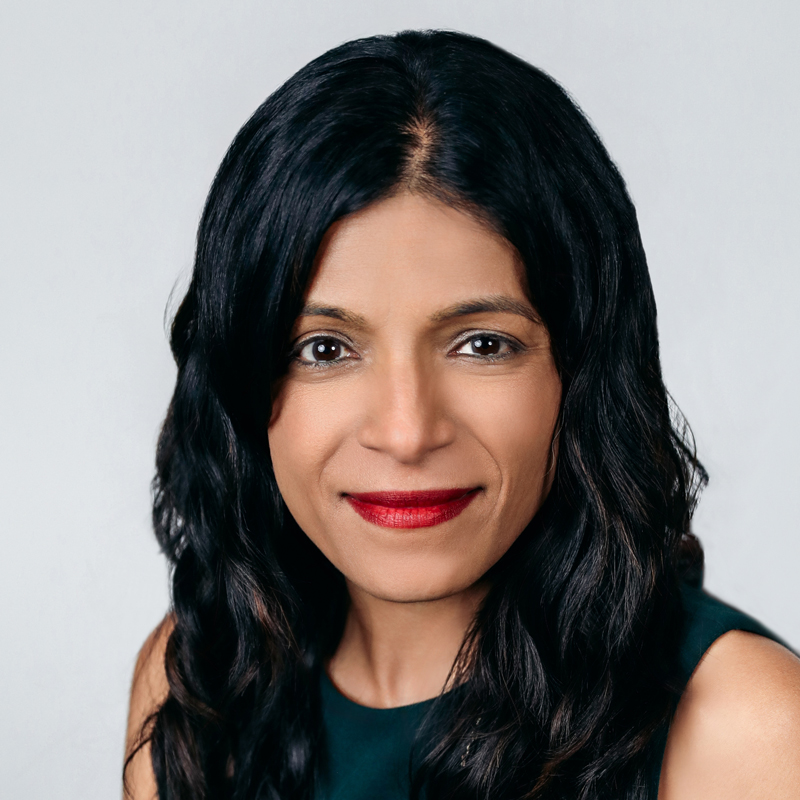
Rachna Shroff, MD
University of Arizona Cancer Center

Rachna Shroff, MD
University of Arizona Cancer Center
Dr. Shroff is an Associate Professor in the Department of Medicine, Division of Hematology and Oncology, and Chief of the Section of Gastrointestinal Medical Oncology at the University of Arizona Cancer Center. She participates in the Southwest Oncology Group GI Committee and the NCI Hepatobiliary Taskforce. Her research interests focus on biliary and pancreatic cancers, including developing personalized novel targeted therapies and identifying new molecular biomarkers for diagnosis and treatment.
(Neoadjuvant Targeted Therapy Initiative Group)
“Taking a patient who was told that he/she had an incurable disease, putting them on a trial with a novel therapy, seeing a dramatic response and then taking them to a curative surgery is by far the most rewarding thing in my day-to-day.”
Can you tell us a bit about yourself?
I am the Chief of GI Medical Oncology at the University of Arizona Cancer Center (UACC) where my clinical and research interests focus on biliary and pancreatic cancers. I also serve as the Director of UACC’s Clinical Trials Office. I was previously on faculty at MD Anderson Cancer Center where I helped grow a prolific biliary research program with a robust clinical trial portfolio. Since joining UACC, I have helped grow the GI research program and have enjoyed building collaborations across the institution to grow translational research efforts. I am committed to improving outcomes for patients with pancreaticobiliary cancers and enjoy watching drug development blossom for my patients with cholangiocarcinoma. There is nothing more rewarding than holding our patients’ hands through this journey and giving them hope as we see immense progress in these diseases.
Personally, I am happily married to a busy allergist on faculty at University of Arizona and we are kept busy raising two beautiful kids. We miss Houston, but have been enjoying the beautiful desert landscape and climate. We love to travel to new places (outside of global pandemics), I live to exercise for wellness, and dancing is my creative outlet.
Can you share one or two of your specific research interests?
My research interests focus on developing novel cytotoxic, targeted, and immune therapies for patients with biliary cancers and pancreatic cancers. I primarily engage in clinical trials but relish working with basic scientists to translate their discoveries into clinic.
Why did you decide to specialize in hepatobiliary cancers?
My focus in HPB cancers came from the clinic. Caring for patients with these diagnoses require committed researchers who are willing to think outside of the box, to advocate for research funding and to work collaboratively to improve outcomes. This is exactly what drove me into this space – a desire to impact patient care in a clinically meaningful way through scientific discovery and momentum. Giving hope to patients and watching the needle move forward is the most rewarding feeling for me as an oncologist.
Can you describe one of the unforgettable moments in your patients care or research that has impacted your career?
There are so many moments that help me keep my eyes on the prize. Taking a patient who was told that he/she had an incurable disease, putting them on a trial with a novel therapy, seeing a dramatic response and then taking them to a curative surgery is by far the most rewarding thing in my day-to-day. This is why I get out of bed every day – to see this progress happening in the clinic! For research, one unforgettable moment was when our national study, SWOG 1815 completed accrual in record time. This was an NCI-sponsored study and the first randomized phase 3 study in biliary cancers in the US. Being able to complete a study quickly to answer a meaningful question for this disease has been hands down one of the most rewarding moments in my research career.
Can you tell us one thing collaboration with colleagues could accomplish that you could not accomplish on your own?
The progress we have seen in understanding the molecular and immune landscape of cholangiocarcinoma is a perfect example of why collaboration is essential to eradicating this disease. We came together as researchers to learn about the importance of biomarker testing and its clinical relevance. This knowledge empowered us to launch clinical trials with targeted therapies that have led to FDA approvals in cholangiocarcinoma! None of this would have been possible if we, as researchers, did not come together to pool knowledge.
If you had access to one resource that would move your research forward, what would that resource be?
Funding! We are getting more and more funding dedicated to cholangiocarcinoma research (thanks in large part to advocacy from CCF), but we have so much more work to do! As we have come together as collaborators and built a repository of preclinical models, there are so many questions left to be asked and answered. More federal funding, philanthropic funding, and industry funding will drive us to progress. We have the momentum and we want to keep it going!
How did you learn about the Cholangiocarcinoma Foundation?
I have had the pleasure to be involved with CCF since (close to) the beginning. Being a junior faculty member at MD Anderson and working with Dr. Milind Javle, he introduced me early on to Stacie and CCF. It became readily apparent to me that this organization was going change the face of this disease and have a last impact. As such, I immediately began attending the national conference and getting to know other members. More recently, I have had the pleasure of chairing the 2020 National Conference and currently serve on the Scientific and Medical Advisory Board. I am so grateful to CCF to have them as a partner and as a force for our research in cholangiocarcinoma.
Can you tell us why you became a member of the ICRN?
I became a member of ICRN early on because I knew that to truly make an impact on this disease, researchers from all over the world would need to come together to ask important scientific questions. ICRN was a mechanism to bring US collaborators in close touch with our brilliant scientists in Europe, Asia, and beyond. Since joining, I have had the pleasure of working in the Immunotherapy Working Group and helping design novel questions in the space of immune-oncology. I also now serve on the Executive Committee and have enjoyed working elbow-to-elbow with international thought leaders to identify areas of focus for research that will have a global impact on cholangiocarcinoma.
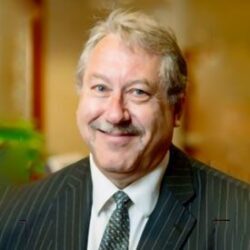
Gregory Gores

Gregory Gores
“I specialized in hepatobiliary cancers as I saw this as an unmet need for patients”
Name: Gregory Gores
Organization: Mayo Clinic
Can you tell us a bit about yourself?
Gregory J. Gores, M.D. is a senior academician with contributions to research, clinical practice, and education. His research contributions include sustained federal funding over three decades, over 700 publications, an H-index of 136, and over 57,000 citations (Scopus data base). His clinical focus on hepatobiliary neoplasia has led to novel protocols regarding liver transplantation for cholangiocarcinoma. Educational activities include mentoring over 80 fellows, and directing a liver transplant fellowship program. These activities have been recognized by receipt of an American Gastroenterological Association Mentorship Award. Extramural leadership positions include past presidency of the American Association for the Study of Liver Disease (AASLD) and the International Liver Cancer Association, and a past Councilor of the American Gastroenterological Association (AGA). His stature and accomplishments were recently recognized by prestigious awards from the Mayo Alumni Association, the AASLD, the German Society of Gastroenterology, and the Canadian Liver Foundation and Canadian Association for the Study of Liver. He was recently appointed as Editor in Chief for Hepatology (term 2021-2025).
Can you share one or two of your specific research interests?
Early diagnosis of cholangiocarcinoma
identification of the molecular dependencies of cholangiocarcinoma
Immunotherapy for cholangiocarcinoma
Liver transplantation as a therapeutic modality for cholangiocarcinoma
Why did you decide to specialize in hepatobiliary cancers?
I specialized in hepatobiliary cancers as I saw this as an unmet need for patients
Can you describe one of the unforgettable moments in your patients care or research that has impacted your career?
Observing the ability to cure patients with liver cancers with liver transplantation
Can you tell us one thing collaboration with colleagues could accomplish that you could not accomplish on your own?
virtually nothing can be accomplished without collaboration
If you had access to one resource that would move your research forward, what would that resource be?
high throughput assays
How did you learn about the Cholangiocarcinoma Foundation?
Stacie and team reached out to me in the very beginning to engage me in the foundation
Can you tell us why you became a member of the ICRN?
to enhance collaboration
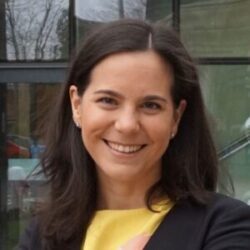
Angela Lamarca

Angela Lamarca
“A smile or a “thank you” after a difficult discussion means the world to me and provides the best motivation to continue our search for better treatment options.”
Name: Angela Lamarca
Organization: The Christie NHS Foundation Trust
Can you tell us a bit about yourself?
I am a Medical Oncologist (MD, PhD, MSc), specialised in gastrointestinal malignancies (hepato-pancreato-biliary (HPB) and neuroendocrine tumours (NETs)); with special interest in biliary tract cancers.
I completed my training in Medical Oncology (including my PhD) in Spain (Hospital Universitario La Paz, Madrid). I moved to The Christie NHS Foundation Trust (Manchester, United Kingdom) in 2013, where I completed a 4-year fellowship programme in HPB and NETs. I have also completed a Masters Degree in Molecular Biology of Cancer and a second Masters Degree in Biostatistics.
I was awarded with an American Society of Clinical Oncology (ASCO) Conquer Cancer Foundation Young Investigator Award in 2017 and I was appointed as a Consultant in Medical Oncology at The Christie NHS Foundation Trust in May 2018 where I continues to develop my career as a clinical and translational researcher with special interest in biliary tract tumour (including cholangiocarcinoma). I am currently a member of the EORTC Gastrointestinal Cancer Group, ENETS Advisory board and a faculty member of the ESMO Non-Colorectal Gastrointestinal Cancer group.
Can you share one or two of your specific research interests?
I believe that there are many areas of unmet need in the current management of biliary tract cancers, including cholangiocarcinoma. There is an urgent need of increasing rate of cure after curative surgery and we are in need of more effective adjuvant treatments and also development of biomarkers that could predict higher risk of relapse and tailoring of adjuvant strategies. In addition, in order to improve outcomes in the setting of advanced disease, two aspects are to be improved. First, we require, biomarkers for prediction of response to current chemotherapy options for tailoring approach in the scenario of cytotoxic chemotherapy. Second, development of new targeted therapies and a better understanding of resistance mechanisms to current therapies is needed.
Why did you decide to specialize in hepatobiliary cancers?
I decided to specialise on biliary tract cancers because it is an area of urgent unmet need. Unfortunately, these cancers are usually diagnosed in advanced stages and they imply poor prognosis, with devastating implications for our patients and their loved ones. The only way of improving outcomes is through research and an in depth understanding of the disease.
Can you describe one of the unforgettable moments in your patients care or research that has impacted your career?
I have had many moments that have reassured me of my career choice and that made me feel appreciated by my patients and their families. I share both happy and sad news with my patients and their loved ones like if I was part of the “family” and this makes my work very special. A smile or a “thank you” after a difficult discussion means the world to me and provides the best motivation to continue our search for better treatment options.
Can you tell us one thing collaboration with colleagues could accomplish that you could not accomplish on your own?
Collaboration with colleagues is key in rare tumours like biliary tract tumours. I don’t think there is anything that could be achieved by us individually and I strongly believe that collaboration between all health care providers and patients is the only way forward.
How did you learn about the Cholangiocarcinoma Foundation?
My first interaction with the Cholangiocarcinoma Foundation was in 2017 when I attended the annual meeting. To me, this was a very special experience from which I would like to highlight the direct contact between patients and healthcare providers, which I believe makes this organisation (and this meeting) very special.
Can you tell us why you became a member of the ICRN?
ICRN represents one of the most relevant networks worldwide working towards better treatment options for patients with cholangiocarcinoma and is an honour to be a member of this initiative.
If you are one of our Cholangiocarcinoma Foundation Fellowship awardees, how has this Fellowship impacted your career?
I was awarded with the Elizabeth Dardenne Stefanini Memorial Research Fellowship on 2017. This fellowship allow for me to develop my own research project focused on better understanding biomarkers associated with worse/better outcomes from platinum-based chemotherapy in biliary tract tumours. this was one of my first steps into an independent research and I will always be grateful to the Cholangiocarcinoa Foundation for this career-changing opportunity.